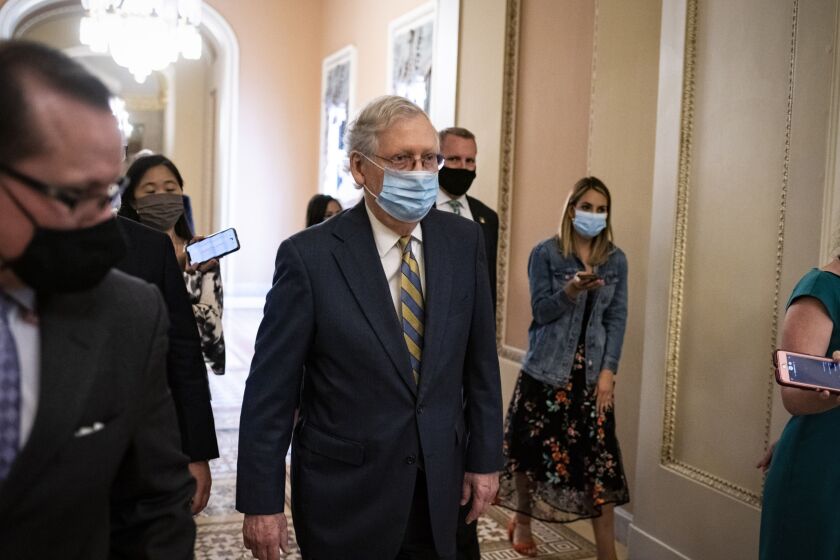The coronavirus outbreak has caused economic activity to crater, and Visa says its focus on services, partnerships and e-commerce has provided stability and a route to growth.
The service released the final regulations and other guidance on the deduction, which was amended by the CARES Act.
The coronavirus pandemic has opened up a number of specific areas with potential for the profession, according to leaders at the AICPA.
Democrats in Congress are criticizing how millions of economic impact payments authorized under the CARES Act are being handled.
Republicans and Democrats are negotiating a new coronavirus stimulus package, but there’s still no law on the books designed to erase the problems that prevented many stimulus payments from getting directly to recipients.
The pressure is on the fintech, which helps banks make digital loans, to stanch its losses and show its lofty market valuation was deserved.
The GOP legislation includes a second tranche of stimulus payments, structured the same way as the earlier round, in March, along with tax credits for businesses.
The economic stimulus plan released by Senate Republicans offers no new money for states and cities to cope with swelling budget shortfalls, leaving them to contend with a grave financial crisis that’s already forcing them to slash spending, furlough workers and delay projects as tax revenue disappears.
Bill Clerico created WePay during the last financial crisis, and sees a similar opportunity now. The coronavirus pandemic is affecting different markets in vastly different ways, and easing the flow of capital is just one way to provide help.
Senate Republicans presented a series of bills that would trim unemployment benefits, send $1,200 to most Americans, and shield businesses, schools and other organizations from coronavirus lawsuits.













